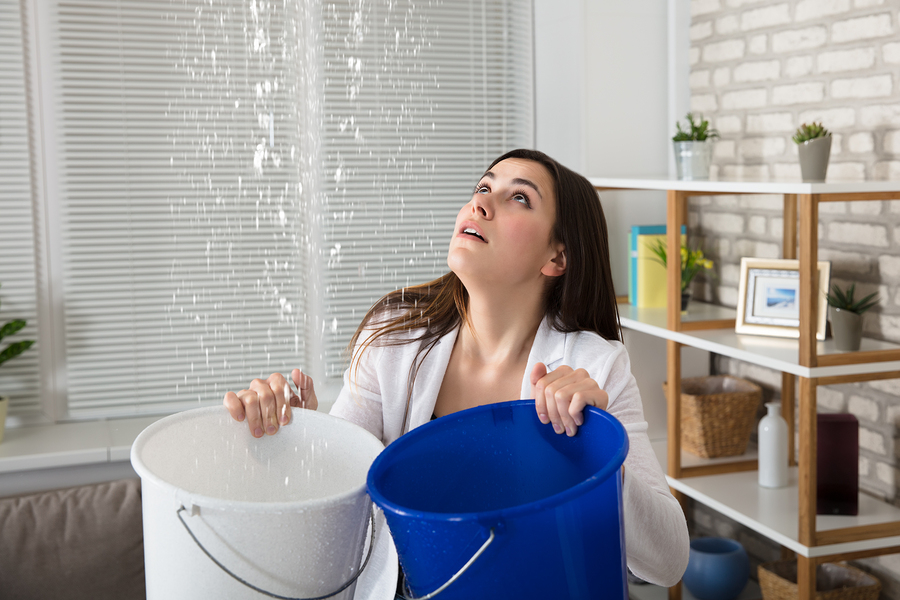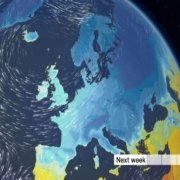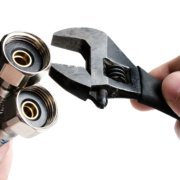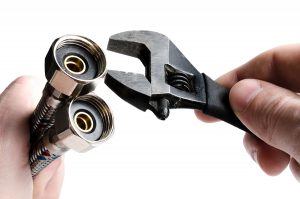
Our advice to holiday homeowners comes as the Met Office predicts temperatures to dip, bringing an end to the mild conditions experienced across much of the UK this autumn. Whilst many holiday homes are still busy with guests enjoying a low season break, the risks of burst pipes are reduced. However, the weather can soon change during December, so it pays to be prepared. For example on 30th November 2022 Aviemore in Scotland saw the lowest temperature recorded so far that autumn, a chilly -6.0°C and parts of the UK had already seen significant frosts. These weather conditions can cause pipes to freeze and burst causing serious damage and vacant holiday homes are particularly vulnerable if basic precautions are not taken.
As holiday home insurance specialists, we are encouraging holiday homeowners to take precautions to prevent water damage by burst pipes.
Whilst most holiday homes are let to guests during much of the year, the weeks either side of the festive period can be less popular. Properties are often empty and therefore more exposed to extreme weather and prone to problems going undetected.
When a severe cold spell swept the UK in 2010, insurers dealt with 3,500 claims for burst pipe damage every day (£1 billion paid out in Nov/Dec alone *ABI).
Mark Lavington, Director at Boshers Ltd explains; “We see more burst pipe and escape of water insurance claims than any other type of claim. The average cost of claims for frozen pipes is £12000. (Claims data 2011-2017 *Ecclesiastical Insurance) Whilst the damage caused can be significant there are several simple steps holiday homeowners can take in order to reduce their risk.”
We have issued guidance including a number of steps you can take in order to reduce the chances of potential damage:
- Turn off the stopcock and drain the water and heating system; or
- Leave the heating on to maintain a temperature throughout your holiday home sufficient to prevent pipes from freezing (above 7°C). Setting your heating thermostat at a low level (15°C) will help maintain a reasonable temperature to prevent frozen pipes.
- If your holiday home is unoccupied during the winter, ensure you turn the water off at the stopcock even if you leave your heating on (where your heating system allows).
- Arrange for regular checks on the property during any period in which it isn’t occupied by guests.
- Lag and insulate pipes, boilers and water tanks, particularly if exposed to the cold (think about attics and outbuildings).
- Make sure your heating and water systems are serviced regularly and checked by a professional.
- Consider installing a leak detection system or automatic stopcock, particularly if you live away from the property.
- Refer to your holiday home insurance policy for conditions specific to your cover
Damage caused by burst pipes can be significant
Mark added “The damage caused to holiday homes by burst pipes can be significant, potentially leaving the holiday property uninhabitable for a considerable amount of time. Whilst the material damage and loss of rental income may be insured the inconvenience to both holiday homeowners and future guests is best avoided. Being proactive in reacting to potentially severe weather could save owners hassle, expense and disruption.”
For further guidance on holiday home checks ahead of extreme weather please visit:
Boshers Holiday Home Insurance Policy Conditions
We are always upfront and clear about our holiday home insurance policy conditions but just in case you need reminding:
It is a condition that whenever the premises are left unoccupied you will arrange that the premises are inspected at least every 14 days by you or an authorised person responsible to you.
Whilst the holiday home is untenanted during the months of October to March inclusive, you will arrange that either (a) the heating system is brought into constant operation and a minimum room temperature of not less than 7 degrees Celsius (45 degrees Fahrenheit) maintained throughout the property or (b) the water is turned off at the stopcock inside the premises and the domestic water system drained and other services such as electricity and gas are disconnected (other than as necessary to maintain the central heating or security system). There is also a requirement that any water tank and pipework in your loft is lagged.
The consequences if you fail to fulfil the above conditions:
If you fail to fulfil the above conditions cover will be reduced to damage by Fire lightning explosion earthquake and by any aircraft flying object (or items dropped from them) vehicle train or animal colliding with the buildings.
To avoid cover being restricted it is important to comply with the policy conditions. We know from many conversations that we have had with policyholders that the majority of holiday homeowners have made arrangements to comply with the heating and inspection conditions detailed above.
Boshers offer specialist holiday home insurance to owners across the UK. Need an insurance quote for your holiday let? Give us a call on 01237 429444 and we’ll be happy to answer any questions you have.


 Holiday homeowners please be proactive as the country braces itself for a big freeze and snow for the remainder of February.
Holiday homeowners please be proactive as the country braces itself for a big freeze and snow for the remainder of February.
 Why should
Why should